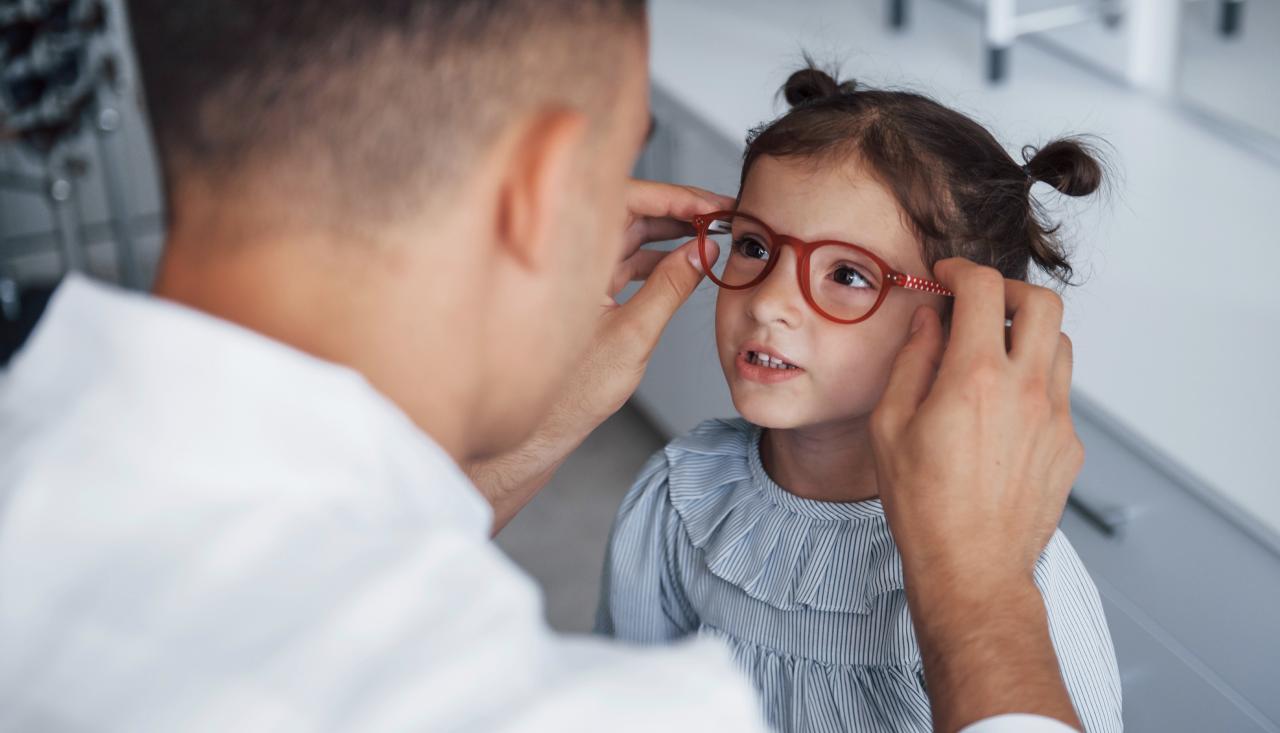Short-sightedness In Children & Young People
Short-sightedness In Children & Young People
If your child has trouble seeing things in the distance, they may be short-sighted. Glasses and contact lenses can correct short-sightedness.
Key points about short-sightedness in children and young people
- short-sightedness often starts in childhood
- it causes things in the distance to appear blurry
- if you think your child is short-sighted, take them to see a doctor or optometrist
- glasses and contact lenses can correct short-sightedness
- spending time outdoors and limiting close-up activities like screen time can help prevent short-sightedness
What is short-sightedness?
Short-sightedness, also called myopia, is a common condition that affects the vision and eyes. Tamariki (children) and rangatahi (young people) with short-sightedness have trouble seeing things that are far away. Things in the distance look blurry to them. Short-sightedness does not affect your child's close-up vision.
Who gets short-sightedness?
Shortsightedness usually starts in childhood. It can get worse as tamariki get older. Shortsightedness tends to stabilise for most rangatahi when they reach their early twenties.
Shortsightedness runs in families. A child with one short-sighted parent has an increased chance of developing it. If both parents are short-sighted, this chance is even higher.
What causes short-sightedness?
Certain things may make tamariki and rangatahi more likely to develop short-sightedness. These include:
- having 1 or 2 short-sighted parents
- not enough time outside
- working on screens for long periods of time
- working on close-up activities such as reading and drawing for long periods of time
What are the symptoms of short-sightedness?
Symptoms of short-sightedness include:
- blurry vision when looking at things that are far away
- squinting to try and see things better
- headaches
- rubbing eyes
- sitting closer to the television at home or the whiteboard in the classroom
- holding things closer to the face when looking at them
How do I know if my child is short-sighted?
If you think your child may be short-sighted, see a doctor or optometrist. An optometrist can check your child’s eyes.
Your child’s doctor may recommend visiting the hospital eye clinic to see a specialist eye doctor. Your child's doctor can refer your child to a specialist if needed.
Will my child get regular eye examinations?
Regular eye examinations are the best way to find eye problems like short-sightedness.
In Aotearoa, New Zealand, there are 2 screenings that look for vision problems in pēpi (babies) and tamariki.
The first vision screening happens soon after your baby is born. The next vision screening happens when tamariki are around 4 years of age. This is part of their B4 School Check.
If a screening test picks up a problem with your child’s vision, the people running the screening program will tell you what to do next.
See the KidsHealth page on vision screening for more information.
What's the treatment for short-sightedness?
Short-sighted tamariki and rangatahi may need glasses to correct their vision. Rangatahi may prefer to use contact lenses for some activities. The optometrist can prescribe glasses and contact lenses for your child after their eye test.
Once your child has glasses, they will need an eye check every year. Regular eye checks help monitor for any changes to the vision. Short-sightedness can get worse with time so your child may sometimes need new glasses.
Laser therapy is not recommended for tamariki and rangatahi because their eyes are still developing.
See the KidsHealth page on whether your child needs glasses for more information.
Can I prevent my child from becoming short-sighted?
Encourage your child to spend time outdoors. This can lower their chance of becoming short-sighted.
Limit the amount of time your child spends on close work. This includes reading, screen-time and playing on a smartphone. This should be no more than 3 hours a day.
See the KidsHealth page on screen time and eye health in children to learn more.
This page last reviewed 14 February 2024.
Do you have any feedback for KidsHealth?
If you have any feedback about the KidsHealth website, or have a suggestion for new content, please get in touch with us.
Email us now
